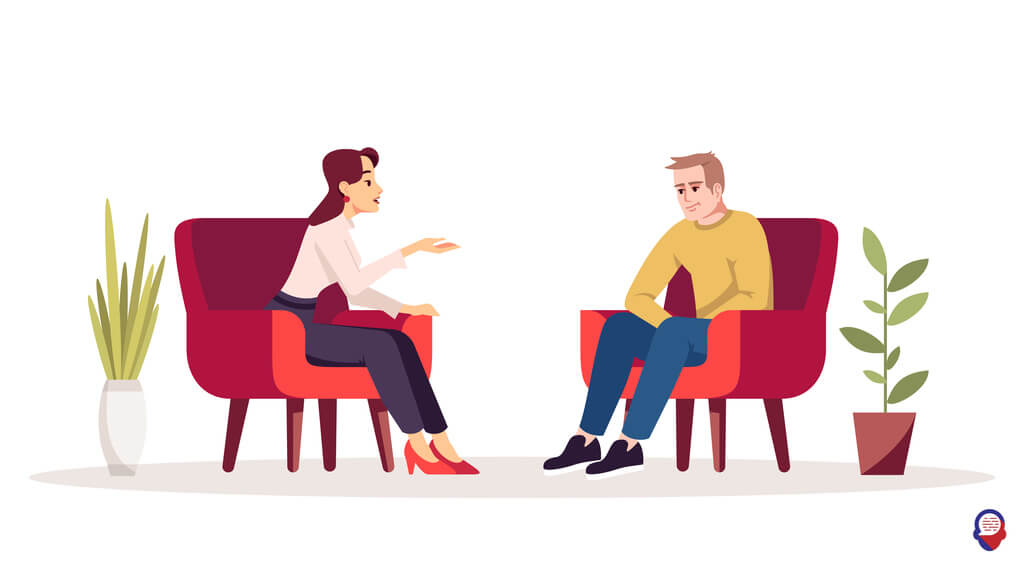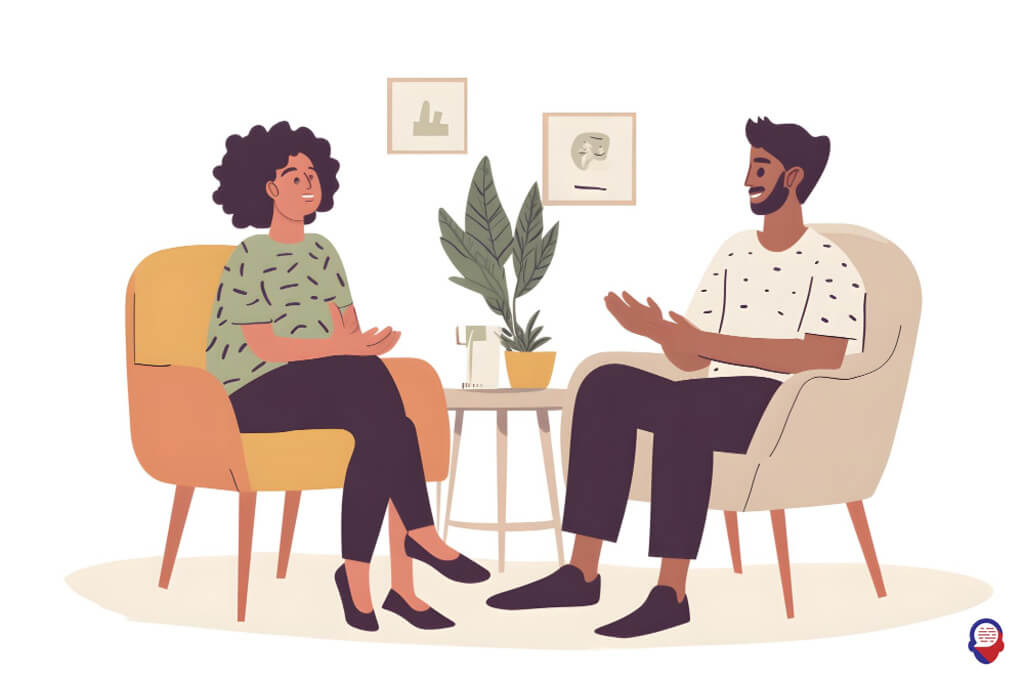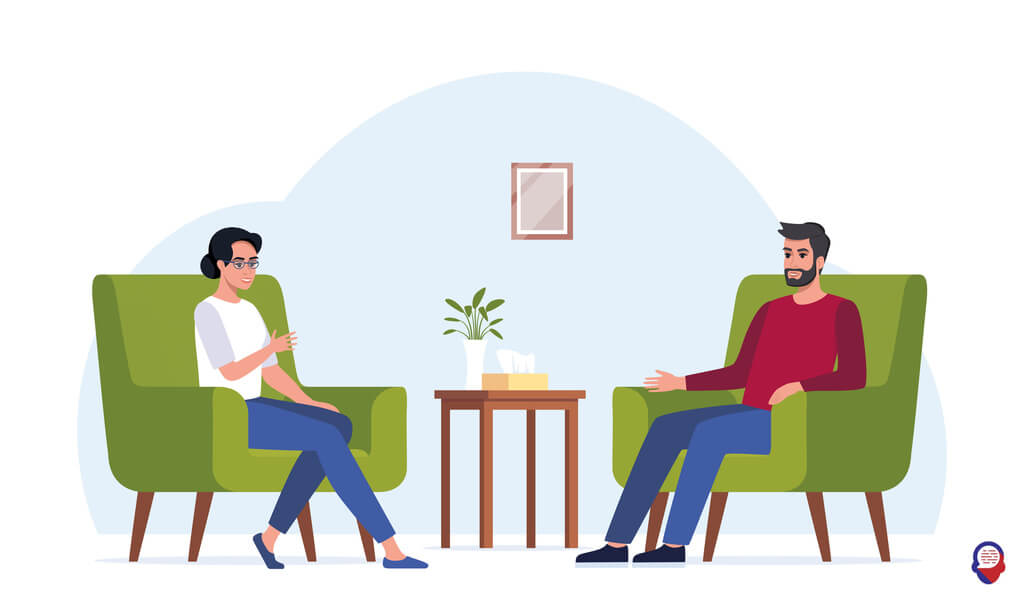Healing Your Family When Addiction Takes Hold
Watching a loved one struggle with addiction is a uniquely painful experience. It’s a storm that doesn’t just batter one person but rips through the entire family, leaving chaos, confusion, and heartache in its wake. You might feel like you’re walking on eggshells, constantly bracing for the next crisis. You might be exhausted from worry, frustrated by broken promises, and isolated by a secret you feel you can’t share. In the midst of this turmoil, the focus is almost always on getting the person with the addiction into treatment. But what about you? What about the rest of the family? The truth is, addiction is a family disease, and for true, lasting recovery to take root, the healing has to involve everyone.

Why Does the Family Need Therapy, Not Just the Addict?
Because addiction fundamentally rewires a family’s dynamics, communication, and emotional health. It creates an environment of stress, secrecy, and instability that impacts every single member, whether they realize it or not. Therapy provides a structured, safe space to untangle this complex web and begin healing the entire family system, not just one part of it.
Think of your family as a delicate mobile hanging from the ceiling. When one piece is pulled down by the weight of addiction, the entire structure tilts and becomes unbalanced. Every other piece shifts and contorts to compensate, trying desperately to keep the whole thing from crashing down. This is what happens in a family. People unconsciously adopt specific roles to cope with the addict’s behavior, and while these roles may feel like survival mechanisms, they often end up enabling the addiction and preventing genuine healing.
Recognizing these roles can be a powerful first step. The "Enabler" tries to protect the person with the addiction from consequences, often by making excuses, paying their bills, or lying for them. The "Hero" works tirelessly to prove the family is okay, often overachieving to bring a sense of worth and pride to a home filled with shame. The "Scapegoat" acts out, attracting negative attention to distract from the central problem of addiction. The "Lost Child" becomes invisible, quietly retreating into their own world to avoid the family’s conflict. Finally, the "Mascot" uses humor and charm to diffuse tension and provide a temporary distraction. These roles are not who you are, but what you do to survive. Therapy helps you find your way back to yourself.

What Happens in Family Therapy for Addiction?
Family therapy for addiction provides a guided process for families to communicate openly, understand the disease of addiction, and develop healthier ways of relating to one another. A therapist acts as a neutral facilitator, ensuring that everyone has a voice and that conversations remain productive rather than destructive. It is a space to rebuild what has been broken.
The sessions are not about placing blame or shaming anyone, including the person with the addiction. Instead, the focus is on creating a new path forward. You will learn about the nature of addiction as a brain disease, which can help reduce anger and resentment. You will work together to identify the dysfunctional patterns that have taken hold in your family and learn practical tools to change them for the better.

What is the Goal of These Sessions?
The primary goals are to re-establish healthy communication, rebuild broken trust, and create a home environment that genuinely supports recovery for everyone involved. It’s about transforming the family from a source of stress into a source of strength.
Achieving these goals involves several key steps. Improving communication means learning to express your feelings and needs without resorting to anger, blame, or criticism. Rebuilding trust is a slow process that requires consistency, honesty, and accountability from all parties. Creating a supportive environment involves learning the critical difference between supporting your loved one’s recovery and enabling their addiction, a distinction that is often blurry in the fog of the crisis.

Who Should Attend Family Therapy?
Anyone who is part of the addict’s core support system and has been significantly affected by the substance use should consider attending. This typically includes immediate family like spouses, partners, parents, children, and siblings.
However, the definition of "family" is broad and inclusive. In some cases, it may be beneficial to include grandparents, close relatives, or even trusted friends who play a significant role in the person’s life. The key is that anyone participating is committed to the process of healing and willing to engage honestly and openly for the betterment of the entire group.

What Are the Different Types of Family Therapy for Addiction?
Therapists use several proven models to help families navigate the challenges of addiction, including Family Systems Therapy, Cognitive Behavioral Therapy (CBT), and community-based support groups. The right approach often depends on the family’s specific circumstances, needs, and the therapist’s expertise.
Each model offers a unique lens through which to view the problem and a distinct set of tools for creating change. Some focus on the family’s structure and communication patterns, while others concentrate on the thoughts and behaviors of individual members. Often, a therapist will integrate elements from different approaches to create a customized treatment plan that best fits your family.

How Does Family Systems Therapy Work?
This approach treats the family as a single emotional unit, where the addiction is a symptom of a larger dysfunction within the system. The therapy focuses on changing the unspoken rules, roles, and dynamics that have allowed the addiction to thrive.
Instead of singling out the person with the addiction as the "problem," a systems therapist examines the interactions between all family members. The goal is to help everyone see how their behaviors, even when well-intentioned, contribute to the overall pattern. By changing this "dance," the family can create a new, healthier dynamic where addiction is less likely to have a foothold. It empowers every member to become an agent of positive change.

What is Cognitive Behavioral Therapy (CBT) for Families?
CBT helps family members identify, challenge, and change the negative thought patterns and behaviors that contribute to conflict and stress. It is a practical, skills-based approach that equips families with tangible tools to cope more effectively.
In family CBT sessions, you might learn specific communication strategies to de-escalate arguments, problem-solving techniques to manage crises, and anger management skills to handle frustration constructively. For the person in recovery, CBT can help them develop strategies to refuse drugs or alcohol and cope with cravings. For family members, it provides a clear roadmap for responding to challenging situations in a way that is both supportive and boundaried.

Are Support Groups like Al-Anon a Form of Therapy?
While not formal therapy conducted by a licensed clinician, peer support groups like Al-Anon and Nar-Anon are incredibly valuable resources that provide a unique form of healing. They offer a safe, anonymous community of people who understand exactly what you are going through because they have lived it themselves.
These groups are based on the principle of shared experience, strength, and hope. Attending meetings can reduce feelings of isolation, provide practical coping strategies passed down from other members, and help you focus on your own recovery, regardless of whether your loved one is seeking help. Many people find that a combination of professional family therapy and peer support provides the most comprehensive foundation for healing.

How Can Therapy Help Me Personally, as a Family Member?
Therapy offers you a confidential sanctuary to process the complex and overwhelming emotions you are experiencing, such as grief, anger, fear, and guilt. It is a space dedicated entirely to your well-being, where you can learn to detach with love and reclaim your own life from the chaos of addiction.
Loving someone with an addiction is often a traumatic experience. You may have been lied to, stolen from, or lived in constant fear for their safety. Therapy helps you address this trauma and begin to heal your own wounds. It teaches you that your needs are valid and that prioritizing your own mental health is not selfish, but essential for both your survival and your family’s recovery.

Is it Selfish to Focus on Myself?
No, focusing on yourself is the most crucial and compassionate thing you can do. You cannot pour from an empty cup, and you cannot be a stable source of support for someone in recovery if you are emotionally and mentally depleted.
Airlines instruct you to put on your own oxygen mask before helping others for a reason. If you run out of air, you are no help to anyone. The same principle applies here. Taking care of your own needs, setting boundaries, and seeking your own healing gives you the strength and clarity required to navigate this difficult journey. Your well-being is not a luxury, it is a necessity for the entire family’s health.

What are Boundaries and Why are They Important?
Boundaries are the clear rules and limits you establish to protect your emotional, mental, and even physical well-being. They are not meant to control the person with the addiction, but rather to define what you will and will not do, and what you will and will not tolerate.
For example, a boundary might be, "I love you, but I will not give you money because I am not willing to finance your addiction." It could also be, "You are not welcome in my home if you are under the influence." These lines are not threats or punishments, they are acts of self-preservation. They stop the cycle of enabling and create clear, predictable consequences for behavior, which is often a necessary catalyst for the person with the addiction to seek help.

How Do I Cope with Feelings of Guilt and Shame?
A therapist can help you work through crippling feelings of guilt and shame by guiding you to a powerful understanding of what you can and cannot control. Many family members internalize the belief that they are somehow responsible for their loved one’s addiction, which is a heavy and unproductive burden to carry.
In therapy, and in support groups, you will learn the "Three Cs": you didn’t Cause it, you can’t Control it, and you can’t Cure it. Accepting this reality is profoundly liberating. It frees you from the responsibility of fixing the other person and allows you to focus your energy where it can make a real difference, on your own healing and on changing your own responses.

How Do I Find the Right Therapist for My Family?
To find the right therapist, you should look for a licensed mental health professional who has specific training and experience in both addiction and family therapy. Credentials to look for include Licensed Marriage and Family Therapist (LMFT), Licensed Clinical Social Worker (LCSW), or a psychologist (PhD or PsyD) with a specialization in family systems and substance use disorders.
You can start your search by asking for recommendations from your GP, checking with your insurance provider for a list of in-network specialists, or using reputable online directories that filter by specialty. Finding the right fit is crucial, as the therapeutic relationship is a key predictor of success. You and your family need to feel comfortable, safe, and understood by the person you choose.

What Questions Should I Ask a Potential Therapist?
Before committing to therapy, you should ask a few key questions to ensure the therapist is a good match for your family’s needs. This initial consultation is an opportunity to interview them, just as they are assessing your situation.
Consider asking questions like: What is your specific experience working with families affected by addiction? What is your therapeutic approach or philosophy? How do you structure sessions, and what can we expect? What is your policy on confidentiality within the family? How do you handle situations where one member is reluctant to participate? Their answers will give you a sense of their style and expertise.

What if My Loved One Refuses to Go to Therapy?
You should absolutely still go to therapy, even if the person with the addiction or other family members refuse to participate. Your personal healing and growth are not dependent on their willingness to change.
When you go to therapy on your own, you learn invaluable tools for managing your own stress, setting effective boundaries, and changing your side of the family dynamic. As you begin to change your reactions and behaviors, the entire family system will inevitably shift in response. Sometimes, one person’s commitment to getting healthy can be the very thing that inspires others to eventually join the process. Your journey is valid and vital, with or without them.
Frequently Asked Questions

How long does family therapy for addiction usually last?
The duration of family therapy varies widely depending on the family’s specific needs, the severity of the addiction, and the goals of treatment. It can range from a few months of focused, short-term work to a year or more of ongoing support, especially if it runs parallel to the loved one’s long-term recovery journey.

Is family therapy covered by insurance?
In many cases, yes. Most insurance plans offer coverage for mental and behavioral health services, which often includes family therapy, especially when it is deemed medically necessary for treating a diagnosed condition like a substance use disorder. It is essential to check with your specific insurance provider to understand your coverage, including any co-pays, deductibles, or session limits.

What if we have a relapse during therapy?
Relapse is a common, though not inevitable, part of the recovery process for many individuals. A good therapist will have prepared the family for this possibility. If a relapse occurs, therapy becomes a critical space to process the event without blame, understand the triggers, and adjust the recovery plan to provide more robust support moving forward. It is not a failure, but a learning opportunity.

Can therapy make things worse at first?
It can sometimes feel that way. When a family begins therapy, they are often unearthing long-buried resentments, secrets, and painful emotions. Bringing these issues to the surface can initially increase tension and discomfort. However, this is a necessary part of the healing process. A skilled therapist will guide you through this difficult phase, helping you build the communication skills needed to resolve these conflicts and emerge stronger on the other side.
You do not have to navigate the storm of addiction alone. The weight is too heavy, the path too confusing. At Counselling-uk, we believe in providing a safe, confidential, and professional place where you can find the support you need for all of life’s challenges, and this is one of the greatest. Taking the first step to seek help for yourself and your family is an act of profound courage and strength. Let us help you find your footing, reclaim your peace, and begin the journey of healing. Reach out today.



